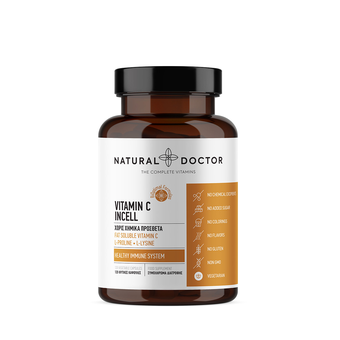Three common symptoms of Vitamin C deficiency

Common causes for vitamin C deficiency are poor diet, alcohol consumption and smoking.
What are three common symptoms of vitamin C deficiency?
- Rough, uneven skin surface
Vitamin C plays an essential role in collagen production. Collagen is a protein abundant in the body's connective tissues, such as the skin, joints, and bones. "Chicken skin" or follicular keratosis occurs after three to five months of reduced vitamin C intake. - Bloody gums and tooth loss
Bloody red gums are another common sign of vitamin C deficiency. Without enough vitamin C, gum tissue weakens and becomes inflamed, causing the gingival blood vessels to bleed easily.
In very advanced stages of vitamin C deficiency, the gums may still look "rotten" with a purple tinge, resulting in the loss of teeth. - Weak immune system
Studies show that vitamin C is concentrated in various immune cells to help fight inflammation and destroy pathogens that cause infections.
Vitamin C deficiency is associated with a weakened immune system and a higher risk of infections, inflammation, and serious diseases such as pneumonia. Vitamin C deficiency still affects one in 20 people in developed countries. As the body cannot produce vitamin C, it must be taken daily through diet or supplementation to prevent deficiency.
In addition to the above symptoms of vitamin C deficiency, there are other symptoms such as slow wound healing, fatigue, bruising, dry skin, mood swings, unexplained weight gain, brittle bones. The deficiency symptoms disappear as soon as the levels of vitamin C in the body become normal with supplementation.
Fat-soluble vs. water-soluble vitamin C
The complete formula of vitamin C, VITAMIN C INCELL, contains three optimal forms of vitamin C.
Two of these forms, calcium ascorbate and magnesium ascorbate, are non-acidic and do not cause gastrointestinal upset. Moreover, they are easily absorbed and suitable for people with sensitivity in the common ascorbic acid.
Furthermore, it contains a fat-soluble form of vitamin C that penetrates the cell membranes, used by the body when needed by the immune system, and is not directly eliminated from the body, as is usually the case with ascorbic acid.
Vitamin C Incell also includes the amino acids lysine and proline, which are building blocks for collagen molecules and help with the normal function of cartilage and bones. According to the European Regulation, vitamin C helps to strengthen the immune system, treat fatigue, protect cells from oxidative stress, and support the metabolism for energy production.
Vitamin C Incell is an excellent way to keep healthy vitamin C levels every day. It is free of chemical additives such as artificial colors, artificial flavors, titanium dioxide, milk, wheat, yeast, soy, corn, or genetically modified organisms.



